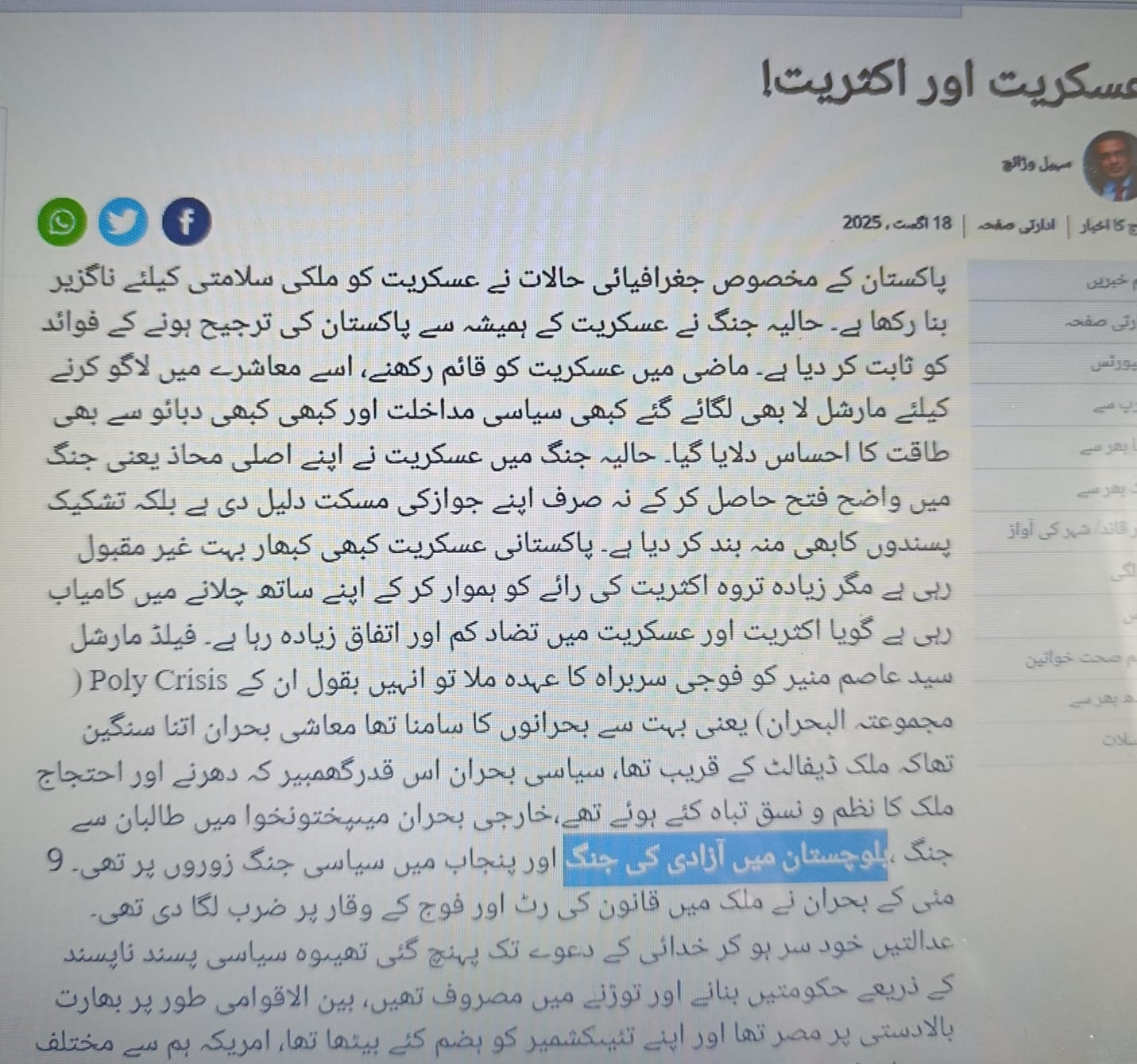DND Report: Every word of every language carries meaning through its denotation (literal meaning) and connotation (associated or emotional meaning). Two different scripts or frames may appear unrelated, but through language they can be connected in a way that shapes perception and influences understanding.
In a recent article titled ‘ عسکریت اور اکثریت‘ by renowned journalist Suhail Warraich, it was suggested that Pakistan is (or was) facing multiple challenges. However, the diction he used raises concerns, as it may not fully reflect what he intended to convey—or worse, it might imply meanings that are damaging. He wrote ‘طالبان سے جنگ ،بلوچستان میں آزادی کی جنگ ‘اور پنجاب میں سیاسی جنگ زوروں پر تھی
While using the diction بلوچستان میں آزادی کی جنگ (War of Independence in Balochistan) refers to what terrorism is in this province. In every sense of words ‘آزادی کی جنگ’ refers to an armed struggle waged by a group, region, or nation to gain political freedom from a ruling power, colonizer, or occupier. Historically, it has been associated with movements such as the American War of Independence (1775–1783) against British colonial rule and the Indian War of Independence (1857), also known as the First War of Independence against British authority.
This framing contrasts with recent U.S. designation of the BLA as a foreign terrorist organization on August 11, 2025, reflecting global recognition of its threat, including a March 2025 train siege killing dozens, highlighting a disconnect between Warraich’s narrative and international policy.
Linguistic analysis reveals “Azadi ki Jang” carries connotations of heroism and sacrifice, but its application to Balochistan’s insurgency—fueled by cross-border support and alleged Indian backing—risks blurring the line between freedom fights and terrorism, a concern backed by studies like those in the Journal of Conflict Resolution on how language shapes conflict perception.

This diction carries both clear denotation and powerful connotation. Its denotation is the struggle for independence from external control in Baluchistan. Its connotation, however, embodies sacrifice, bravery, heroism, pride, and moral legitimacy in resisting oppression. It evokes national unity, identity, and a sense of patriotic duty. Yet, from the perspective of the ruling state or colonial power, the same phrase may connote rebellion, mutiny, or illegitimate uprising.
When applied outside its historical and political context, this diction risks glorifying violent acts against an established state as a legitimate fight for freedom. In Balochistan, the use of the phrase Azadi ki Jang overlaps with the same rhetoric claimed by terrorist organizations such as the BLA and the Majeed Brigade, which frame their attacks on Pakistan as a so-called struggle for liberation.
Therefore, when such powerful diction is employed by a respected and widely-read journalist like Suhail Warraich, it becomes problematic. It risks legitimizing terrorism—much of which is fueled by cross-border support from Afghanistan and allegedly sponsored by India—by cloaking it under the heroic and patriotic imagery of a “freedom struggle.” Such usage blurs the line between legitimate political discourse and terrorism, ultimately harming the national narrative and the state itself.
